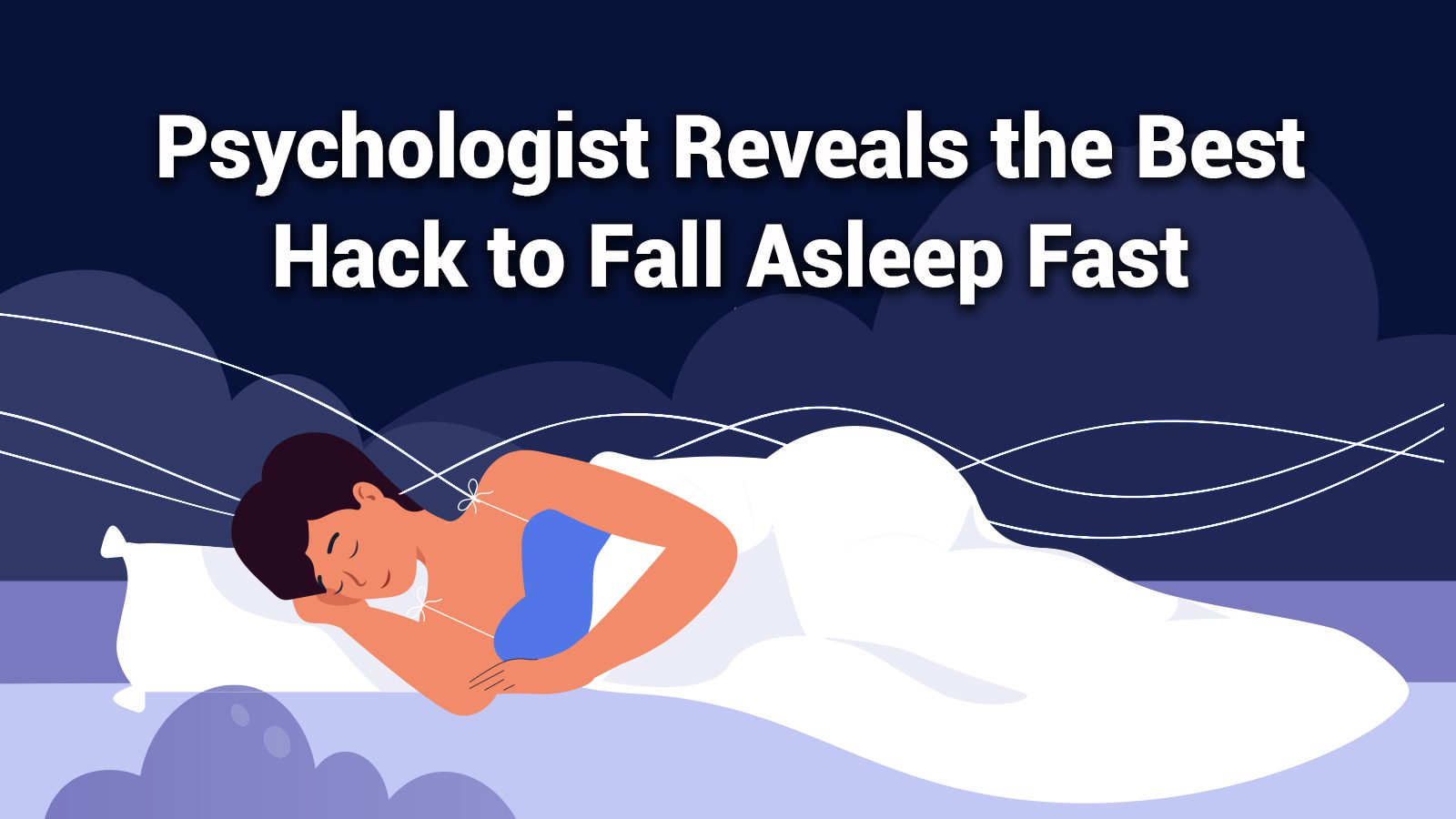Millions of people struggle with insomnia in today’s world, but a technique called paradoxical intention might help. The method instructs patients to stay awake longer rather than fall asleep. It may sound counterintuitive, but it takes the pressure off falling asleep by telling people to do the opposite.
Many people with insomnia feel anxious at bedtime because of poor sleep performance. Instead of winding down before bed, they feel wide awake and restless. Their fight-or-flight response becomes activated due to heightened anxiety, making them dread nighttime.
However, psychologists have found that paradoxical intention tricks the brain into falling asleep. By not obsessing about nodding off and letting it happen naturally, insomnia begins to lose its grip. Below, we’ll delve more deeply into this technique to help you get better sleep.
Psychologist Explains How Paradoxical Intention Helps You Fall Asleep Fast
People with insomnia tend to have performance anxiety regarding falling asleep. Due to nights spent tossing and turning, they begin to fear the consequences of staying awake. Eventually, they start to feel apprehensive about nighttime altogether, and intrusive thoughts about sleep anxiety become more common.
However, sleep therapists say that paradoxical intention removes the trepidation about falling asleep. Patients can learn to accept natural physiological responses by confronting the fear of staying awake. For example, people without insomnia may have a few nights of poor sleep every so often. However, they don’t obsess over sleepless nights, accepting them as a part of life.
The premise behind paradoxical intention stems from cognitive behavioral therapy (CBT) techniques. Psychologists and sleep therapists instruct patients to engage in their most feared behavior. Meeting the fear head-on removes its hold on them in the future.
Regarding insomnia, the behavioral technique involves accepting quiet wakefulness without judgment. In other words, no matter what happens at bedtime, you embrace it rather than fight it. Instead of trying to force sleep, you allow it to happen naturally. As you practice the technique more, you learn to surrender control and flow with your body’s rhythm.
Psychologists utilize paradoxical intention to treat various mental health conditions, such as OCD, anorexia, and phobias. In the 1990s, the idea of treating insomnia patients with paradoxical intentions became widespread. However, psychologists have used the sleep technique in behavioral programs since the 1970s.
In one recent study on the effectiveness of paradoxical intention, researchers found it significantly improved insomnia symptoms. In addition, they observed reductions in sleep-performance anxiety and enhanced perception of feeling rested. The team found that the sleep technique was helpful for those with sleep-onset insomnia.
How to Fall Asleep Fast With Paradoxical Intention
To practice this technique, create an ideal sleeping environment first. Even though you want to avoid expectations about sleep, you should still make your bedroom as relaxing as possible.
Turn off all the lights and distractions to make the environment conducive to sleep. Keep your smartphone in a different room or area you can’t reach. Also, the body requires a cool temperature for sleep, so set the thermostat to 60-68 degrees Fahrenheit. Cooler temperatures trigger the release of melatonin, the hormone that encourages sleep.
Finally, have a regular sleep routine, so your body knows when to wind down. Bedtime rituals don’t guarantee you will fall asleep at the same time each night, of course. It helps your mind and body become accustomed to a schedule and regulate sleep hormones more effectively.
Once you have completed these steps, you’re ready to begin the paradoxical intention exercise.
1 – Lie down and attempt to stay awake as long as possible.
Remember, you don’t want to focus on sleep since that increases anxiety. As you lie awake in bed, observe any tension in your body and mind. Avoid passing judgment if uncomfortable thoughts or emotions arise. Simply watch as ideas come into your mind, as you would during meditation.
This body scanning activity helps dissolve stress and distracts your mind from sleep anxiety. In this phase, you want to accept whatever happens without needing to change it. Eventually, you will become more comfortable with this quiet awareness when sleep evades you.
2 – Tell yourself not to close your eyes, no matter what.
While you practice observing without judgment, keep your eyes open and alert. Closing them will only promote sleep, which you want to avoid entirely. For now, set the intention of staying awake and continue with body relaxation techniques. Tell yourself, “I will stay up for ten more minutes.” Keep repeating this phrase until your eyes start to feel heavy.
3 – Affirm that you need to feel exceptionally sleepy for work tomorrow.
Another key to success with paradoxical intention involves thinking about the consequences of sleep deprivation. This strategy may sound counterintuitive, but it aims to reduce performance anxiety. After all, most people don’t have a fear of staying awake – they fear its adverse effects.
So, picture how you would feel going to work without sleeping tomorrow and try to accomplish this goal. As the night wears on, you will eventually become powerless to fight sleep any longer. Even though you want to show up for work sleep-deprived, your body and mind require sleep.
Taking the pressure off sleep by trying to achieve the opposite can significantly benefit those with insomnia.
Final Thoughts on The Best Hack to Fall Asleep Fast Using the Paradoxical Intention Technique
If you’ve tried to cure your insomnia to no avail, the paradoxical intention method could offer relief. The technique aims to help people fall asleep by instructing them to stay awake as long as possible. It sounds nonsensical, but many studies have shown that this method improves insomnia patients.
Some people with insomnia have difficulties with sleep onset or falling asleep initially. However, when they confront their fears about staying awake, it makes patients feel empowered. They realize that obsessing about sleep only increases their anxiety and discourages relaxation. Only when they relinquish control does their body and mind feel calm enough to induce sleep.
Hopefully, you will find success with paradoxical intention and enjoy a more restful sleep.





















